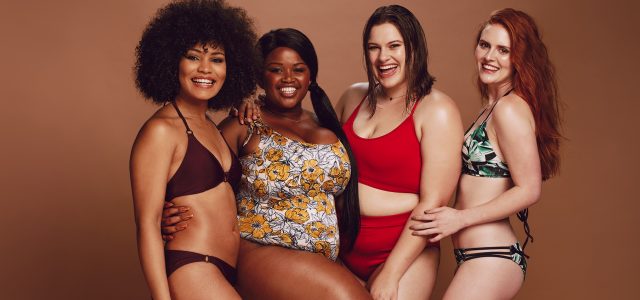
Picture Perfect
We all know that when it comes to fashion, everyone wants to look good on the catwalk and on the camera, but how realistic is it for us to look perfect all the time and how good is it for our actual wellbeing
Today’s generation Z are always on their phones. They constantly feel the need to post images of themselves (or their food) and see how many people like or comment on their posts. But trying to have a picture-perfect image and life can have a detrimental effect on our self-esteem and mental health.
The fashion industry needs to take stock and start featuring women and men of all ages, sizes and ethnicity to represent the world we live in today.
Unfortunately, not all of us have access to a personal trainer, nutritionist, makeup and hair stylist and there is no such thing as a perfect body. We should all be celebrating the one we have. Regrettably that’s not always the case, with girls in particular, feeling they need to be constantly made up, and in some cases considering anti-wrinkle injections or lip enhancements from an early age.
The #StatusOfMind study, undertaken by the Royal Society for Public Health (RSPH) in 2017, surveyed nearly 1,500 young people between the ages of 14 and 24, to assess how social media platforms affected health and wellbeing, including anxiety, depression, self-identity and body image.
While YouTube was found to have the most positive impact, Instagram, Snapchat, Facebook and Twitter all had negative effects on mental health.
For example, researchers reported that Instagram draws young women to “compare themselves against unrealistic, largely curated, filtered and Photoshopped versions of reality”.
Instagram is currently trialling in the US the removal of likes on posts, in a bid to curb its negative effects on young people’s health and wellbeing.
Whether it works, remains to be seen.
Whilst some fashion chains are increasing their size range, they are still showcasing the products on models who are a size 6-8. The catwalk has also been criticised for using models who are just simply too thin and look anorexic. In fact, Victoria Beckham faced criticism for promoting what many people feel to be an unhealthy body image.
High street chains can play their part by changing their mannequins in their windows from a skinny size 6 to a more realistic 12-14. They can stop photoshopping photographs for social media and keep it natural. After all we all have flaws, models need to look like real women.
Yes, we should be encouraging the young and old to take care of themselves through exercise, eating healthy, sleeping well etc, but most of all, that beauty comes from within, and it’s more important to learn to love yourself than to gain more followers on Instagram.
We are all unique and individual human beings and we shouldn’t have to compare ourselves to others just because an industry says so.
Just celebrate being you and you will feel much happier.

